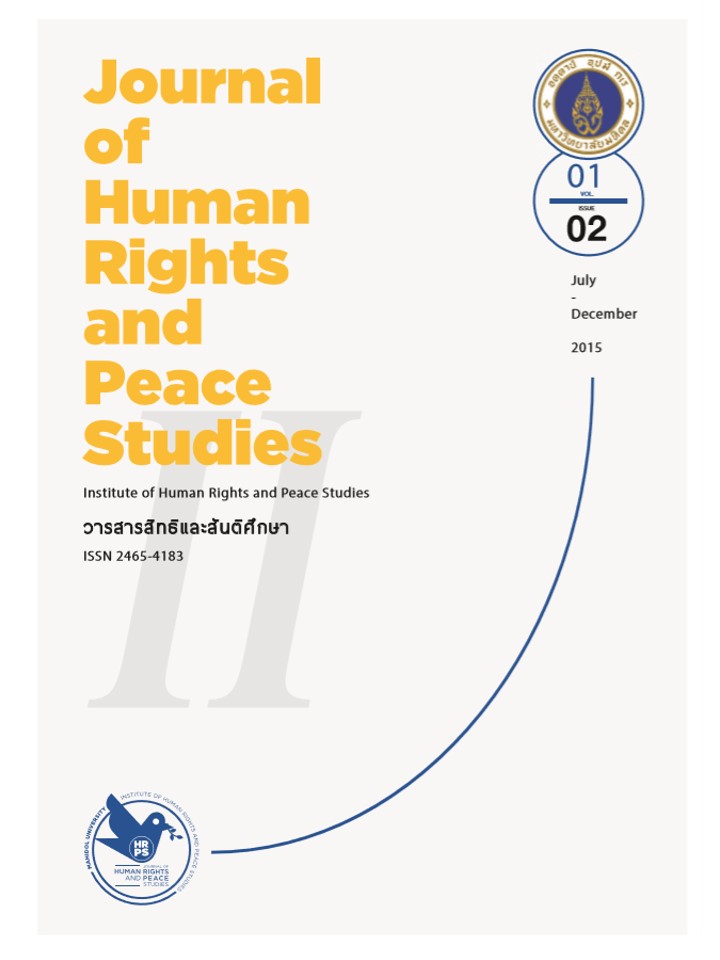ประสบการณ์เก็บข้อมูลภาคสนาม ในพื้นที่ความรุนแรงถึงตาย
Main Article Content
Abstract
It has been known that doing fieldwork is the heart of data
collection methods for anthropologists as it is a science meant
to understand human beings, culture, and everyday life behavior
through practicing participatory observation and living in the village.
Those techniques normally can be done in the “normal” fields. However,
in dangerous places and deadly zones, an anthropologist might
need special techniques to do fieldwork. This article aims to present
a researchers’ experience and negotiation strategies while doing
fieldwork under fire or in the deadly conflict zone of the Deep South
of Thailand since 2007 onward. The contribution of this study may
be useful for researchers who are passionate in doing fieldwork in
dangerous fields.
Article Details
The views, opinions, and pictures expressed in this journal are those of the authors and do not necessarily reflect the opinions and viewpoints of the editor and the editorial board. All rights are reserved by the authors and the Institute of Human Rights and Peace Studies of Mahidol University. No part of this journal may be reproduced, stored in a retrieval system, or transmitted in any form or by any means without the prior permission in writing from the journal’s editor, or as expressly permitted by law, or under terms agreed with the appropriate reprographics rights organization. Non-commercial use of information in this journal must be properly referenced.
References
ในรอบกึ่งศตวรรษ. กรุงเทพฯ: สำนักพิมพ์มหาวิทยาลัยธรรมศาสตร์.
พัทธ์ธีรา นาคอุไรรัตน์. (2556). “คนกลุ่มน้อยนิด” และ “ชีวิตแห่งการต่อรอง”:
กรณีศึกษาคาทอลิกในปัตตานี. กรุงเทพฯ: ดุษฎีนิพนธ์ ปรัชญาดุษฎี
บัณฑิต สาขาสหวิทยาการ วิทยาลัยสหวิทยาการ มหาวิทยาลัย
ธรรมศาสตร์.
ยศ สันตสมบัติ. (2559). มนุษย์กับวัฒนธรรม. พิมพ์ครั้งที่ 4. กรุงเทพฯ: สำนักพิมพ์
มหาวิทยาลัยธรรมศาสตร์.
Green (1995). Living in a State of Fear. In Nordstrom, C., and Robben,
A. C.G.M., Fieldwork Under Fire: Contemporary studies of
Violence and Survival pp.105-128.
Nordstrom, C. and Robben, A. C.G.M. (Eds.) (1995). Fieldwork under
fire: Contemporary Studies of Violence and Survival, Berkeley,
Los Angeles, London: University of California Press.


